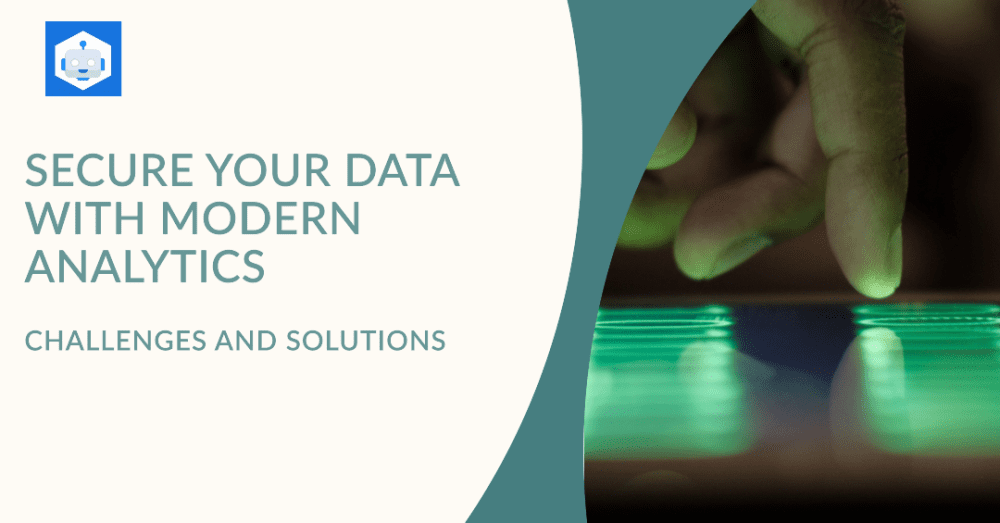Data drives business decisions. As companies harness vast amounts of information for analytics, they face a critical challenge: keeping that data secure. This article examines the complexities of data security in analytics, exploring key issues, effective strategies, and future trends.
Why Data Security Matters in Analytics
Analytics companies handle sensitive information daily, from personal customer data to proprietary business intelligence. A security breach in this field can lead to:
- Financial Losses: Direct costs and potential legal liabilities.
- Reputational Damage: Loss of client trust in an industry where confidence is key.
- Competitive Disadvantage: Leaked proprietary data can erode a company’s market position.
- Regulatory Non-Compliance: Violations of data protection laws often result in severe penalties.
Key Challenges in Securing Analytics Platforms
- Scale and Complexity: Modern platforms process enormous volumes of data from various sources, increasing potential vulnerabilities.
- Real-Time Processing: The demand for instant insights can conflict with thorough security checks.
- Data in Transit: Protecting information as it moves between collection points, storage, and analysis platforms is crucial.
- Access Control: Balancing data accessibility for analysts with strict security measures remains an ongoing challenge.
- Evolving Threats: Cybercriminals constantly develop new tactics to exploit vulnerabilities.
Essential Strategies for Robust Data Security
1. Comprehensive Data Governance
Implement a strong data governance framework that defines policies for data collection, storage, use, and disposal. This should include clear data classification guidelines and access control policies.
2. End-to-End Encryption
Use strong encryption for data at rest and in transit. This protects sensitive information from unauthorized access, especially in cloud-based analytics platforms.
3. Advanced Authentication Mechanisms
Implement multi-factor authentication (MFA) and adaptive authentication techniques to ensure only authorized personnel can access sensitive data and analytics tools.
4. Regular Security Audits and Penetration Testing
Conduct frequent security audits and penetration tests to identify and address vulnerabilities before they can be exploited.
5. Employee Training and Awareness
Educate your team regularly on cybersecurity best practices and the importance of data security in analytics. Human error remains a significant risk factor in data breaches.
6. Compliance with Industry Standards
Adhere to relevant industry standards and certifications. SOC 2 (Service Organization Control 2) reports play a crucial role here. SOC 2 compliance demonstrates a commitment to data security and can differentiate a company in the market. It covers crucial aspects like security, availability, processing integrity, confidentiality, and privacy.
7. Secure API Management
For analytics platforms using APIs for data ingestion or sharing, ensure they are securely managed and monitored. Implement API gateways and use OAuth for secure authorization.
8. Data Anonymization and Pseudonymization
Where possible, use techniques like data anonymization or pseudonymization to protect individual privacy while still allowing for meaningful analysis.
Emerging Trends and Technologies
1. AI and Machine Learning for Security
AI and Machine Learning are increasingly used to detect anomalies and potential security threats in real-time, offering a more proactive approach to security.
2. Blockchain for Data Integrity
Blockchain technology is being explored as a means to ensure data integrity and create immutable audit trails in analytics processes.
3. Homomorphic Encryption
This advanced encryption method allows computations to be performed on encrypted data without decrypting it first, offering new possibilities for secure data analysis.
4. Zero Trust Architecture
The Zero Trust model, which assumes no user or system should be trusted by default, is gaining traction in securing analytics environments.
5. Edge Computing Security
As more data is processed at the edge (closer to the point of collection), new security paradigms are emerging to protect this distributed analytics ecosystem.
The Role of Compliance and Certifications
While technical measures are crucial, compliance with industry standards and regulations plays a vital role in ensuring comprehensive data security. This is where frameworks like SOC 2 become particularly relevant.
SOC 2 reports, developed by the American Institute of CPAs (AICPA), provide detailed information about the security, availability, processing integrity, confidentiality, and privacy controls of service organizations. For analytics providers, achieving SOC 2 compliance:
- Demonstrates a commitment to robust security practices
- Builds trust with clients and partners
- Can be a significant competitive advantage in the market
However, it’s important to note that while SOC 2 compliance is valuable, it should be part of a broader, holistic approach to data security rather than the sole focus.
A Holistic Approach to Data Security
Data security in modern analytics necessitates a comprehensive strategy that is not only effective but also seamlessly integrated into every aspect of analytics platforms and processes. To achieve this, a holistic approach is essential, one that combines technical measures, sound policies, employee education, and adherence to industry standards and certifications such as SOC 2.
As analytics capabilities continue to advance, it is imperative that data security measures evolve in tandem. By staying informed about emerging threats and new technologies, analytics providers can maintain a strong commitment to protecting sensitive information. This proactive stance enables them to deliver powerful insights while also providing peace of mind to their clients.
Furthermore, data is frequently referred to as the new oil, highlighting its immense value. However, ensuring its security transcends mere protection; it is fundamentally about preserving the core of modern business intelligence. Therefore, as we explore the expanding possibilities of data analytics, we must concurrently elevate the standards for data security. This dual focus will help foster a safer and more trustworthy digital ecosystem for all stakeholders involved.
Check out more AI tools.
Elevate Guest Experience with RoomGenie
Create stunning presentations with PresentationGenie
